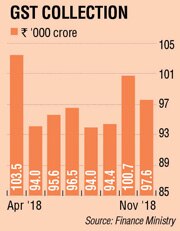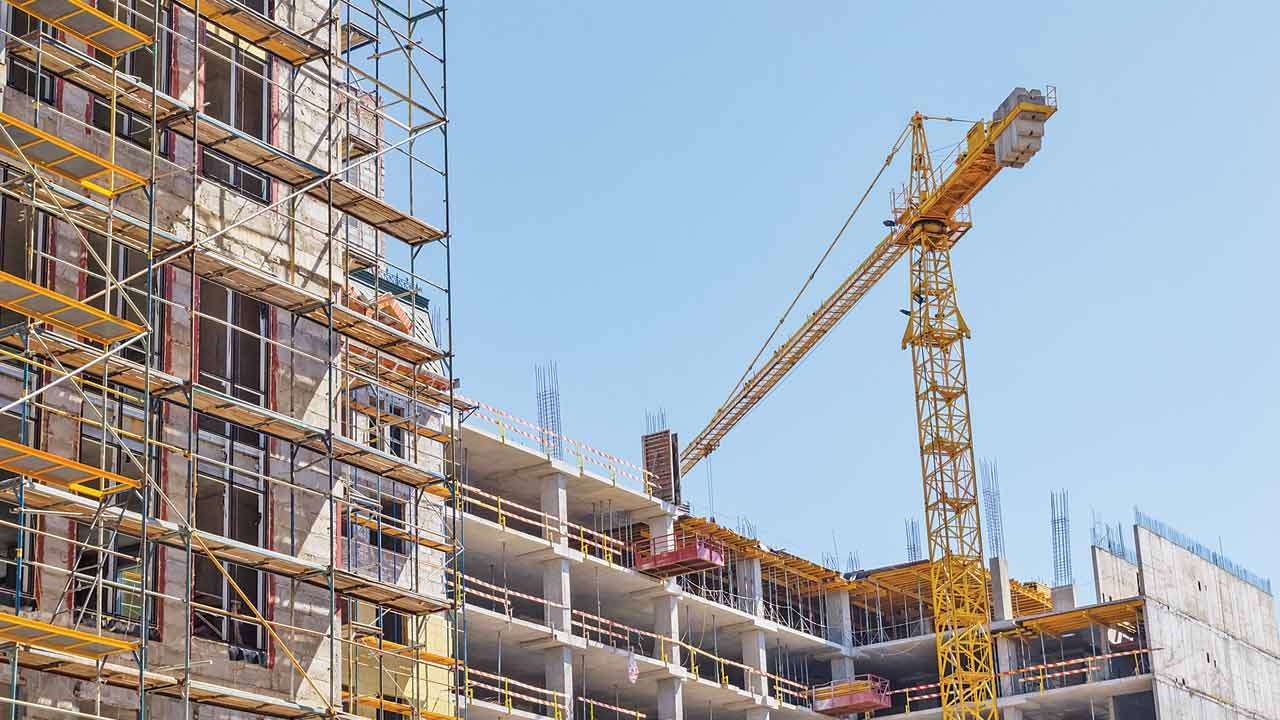In a big relief to the real estate sector, the Goods and Services Tax (GST) Council on Tuesday approved a transition plan for the implementation of new tax structure for under-construction residential property in the country. It also gave an option to the builders of the ongoing projects to shift to new rates without Input Tax Credit (ITC) or continue with the old tax rates.
The ongoing projects have been defined as the ones where the construction, as well as the bookings both, has started prior to April 1. The developers are likely to get about a month for the transition.
"The developers of the residential buildings which are incomplete as on March 31 will have the option to choose the old rate of 12% or 8% with ITC or the new rate of 5% or 1% without ITC. The decision on the timeframe for transition will be taken in consultation with the states," revenue secretary Ajay Bhushan Pandey told reporters after the GST meeting. The meeting was chaired by finance minister through video-conferencing.
 The new GST rates will be mandatory for the new projects from April 1. The Council had in its last meeting on February 24 slashed tax rates for under-construction houses or ready-to-move-in flats where completion certificate has not been issued to 5% from the current 12% and in the affordable category (valued up to Rs 45 lakh) to 1% from 8% while withdrawing the benefits of ITC.
The new GST rates will be mandatory for the new projects from April 1. The Council had in its last meeting on February 24 slashed tax rates for under-construction houses or ready-to-move-in flats where completion certificate has not been issued to 5% from the current 12% and in the affordable category (valued up to Rs 45 lakh) to 1% from 8% while withdrawing the benefits of ITC.
The builders who opt for the new rates will have to reverse the ITC as per a new formula proportionate to the total carpet area, flats bookings, invoices issued and completion of the building.
Up to 15% of the commercial space in the residential project will be treated as residential property for GST calculations, as per the transition rules.
Also, the builders will have to procure as much as 80% of the input material and services from GST registered dealers. If the procurement is less than the prescribed limit, the tax will have to be paid at 18% on basis of Reverse Charge Mechanism (RCM). However, tax on cement purchased from an unregistered person will be charged at 28% under RCM.
Pointing out practical difficulties while following the guidelines under the new taxation slabs starting April 1, 2019, Parag Mehta, Partner, N.A Shah Associates LLP commented that following this criteria will be a bit difficult to follow in the interior areas (as there are fewer registered vendors).
Experts said that the developers are likely to opt for the old rates for the ongoing under-construction projects. In that case, the value of the flats is likely to remain the same. However, in case, the builders opt for the new tax rates, the prices may go up.
From homebuyers perspective, by providing an option to developers to select one of the two tax slabs for ITC benefits will only create more troubles. As per PropTiger's Chief Investment Officer Ankur Dhawan, providing option will confuse customers. "Customers will prefer reduced rates whereas developers might prefer higher rates with ITC. We can expect many more disputes and cases in anti-profiteering authority in coming days," said Dhawan.
On the announcement, Abhishek Jain, tax partner, EY said, "The approval of the scheme as an optional one for construction projects underway was one of the key asks of the real estate industry. It's go ahead by the GST Council brings quite a relief for this sector in handling transition issues in specific."
According to MS Mani, partner, Deloitte, "The move to segregate under-construction projects from new projects would provide relief to builders who were worried about the loss of ITC. This would also enable them to price the loss of ITCs in the new projects. Reversal of ITC on a proportionate basis would entail significant computational issues for builders as each project would be in various stages of construction and have differing pre- and post-completion sale patterns. Protecting existing input tax credits and mandating the new rates only in respect of new projects would benefit both builders and consumers.
Post-announcement, Mekhla Anand, partner, Cyril Amarchand Mangaldas in a statement said, "By making the new tax rates optional for residential projects under construction, GST Council has effectively addressed apprehensions as well as potential disputes on various computational and transitional issues such as the loss of ITC, pricing etc. that were bound to arise on account of the change."
REALTY RELIEF
- 12% or 8% – Old GST rate with ITC benefits
- 5% or 1% – New GST rate without ITC
- 80% – Of input material and services needs to be procured from GST registered dealers
